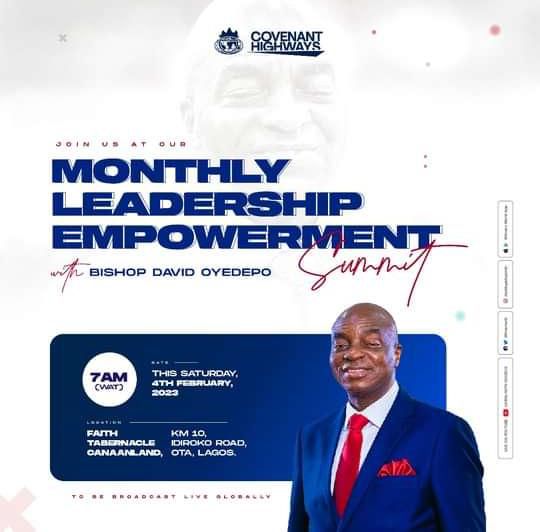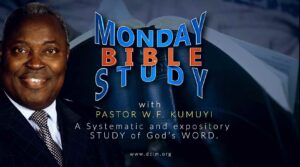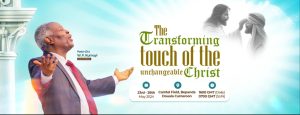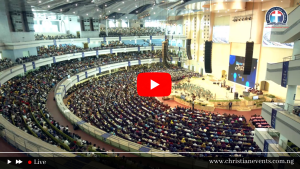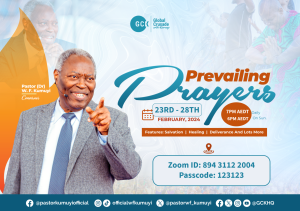Deeper Christian Life Ministry – Search The Scripture Sunday 14th November 2021: Lesson 1026

Topic: Growing In Christian Virtues
MEMORY VERSE: 2 Peter 1:5-7
“And beside this, giving all diligence, add to your faith virtue; and to virtue knowledge; And to knowledge temperance; and to temperance patience; and to patience godliness; And to godliness brotherly kindness; and to brotherly kindness charity”.
TEXT: 2 Peter 1:1-21 (KJV)
1 Simon Peter, a servant and an apostle of Jesus Christ, to them that have obtained like precious faith with us through the righteousness of God and our Saviour Jesus Christ:
2 Grace and peace be multiplied unto you through the knowledge of God, and of Jesus our Lord,
3 According as his divine power hath given unto us all things that pertain unto life and godliness, through the knowledge of him that hath called us to glory and virtue:
4 Whereby are given unto us exceeding great and precious promises: that by these ye might be partakers of the divine nature, having escaped the corruption that is in the world through lust.
5 And beside this, giving all diligence, add to your faith virtue; and to virtue knowledge;
6 And to knowledge temperance; and to temperance patience; and to patience godliness;
7 And to godliness brotherly kindness; and to brotherly kindness charity.
8 For if these things be in you, and abound, they make you that ye shall neither be barren nor unfruitful in the knowledge of our Lord Jesus Christ.
9 But he that lacketh these things is blind, and cannot see afar off, and hath forgotten that he was purged from his old sins.
10 Wherefore the rather, brethren, give diligence to make your calling and election sure: for if ye do these things, ye shall never fall:
11 For so an entrance shall be ministered unto you abundantly into the everlasting kingdom of our Lord and Saviour Jesus Christ.
12 Wherefore I will not be negligent to put you always in remembrance of these things, though ye know them, and be established in the present truth.
13 Yea, I think it meet, as long as I am in this tabernacle, to stir you up by putting you in remembrance;
14 Knowing that shortly I must put off this my tabernacle, even as our Lord Jesus Christ hath shewed me.
15 Moreover I will endeavour that ye may be able after my decease to have these things always in remembrance.
16 For we have not followed cunningly devised fables, when we made known unto you the power and coming of our Lord Jesus Christ, but were eyewitnesses of his majesty.
17 For he received from God the Father honour and glory, when there came such a voice to him from the excellent glory, This is my beloved Son, in whom I am well pleased.
18 And this voice which came from heaven we heard, when we were with him in the holy mount.
19 We have also a more sure word of prophecy; whereunto ye do well that ye take heed, as unto a light that shineth in a dark place, until the day dawn, and the day star arise in your hearts:
20 Knowing this first, that no prophecy of the scripture is of any private interpretation.
21 For the prophecy came not in old time by the will of man: but holy men of God spake as they were moved by the Holy Ghost.
MESSAGE:
Apostle Peter introduced himself as “a servant and an apostle of Jesus Christ” in writing to a people with whom he shared the same saving faith (2 Peter 1:1). His servanthood and apostleship were made possible by the precious faith he possessed. As a servant, he showed his identification with his audience with a humble disposition to run errands for his Master, our Lord Jesus. As an apostle, he depicted his honour and authority in Christ, which qualified him as a worthy representative of Jesus, inspired by the Spirit to write the epistle.
He salutes the believers by expressing his desire that “Grace and peace be multiplied” to them “through the knowledge of God, and of Jesus our Lord” (2 Peter 1:2). This peculiar apostolic greeting of desiring increase of grace and peace for the believers is a common salutation in the apostolic epistles. This emphasises the importance of grace in the life of every believer. Grace brings us into the Kingdom and sustains us in it (Ephesians 2:8; 1 Corinthians 15:10). The Apostle clarifies that through God’s power, the Christian is given all things that pertain to life and godliness. In this chapter, Apostle Peter focuses on the need to grow in Christian character and pursuit of moral excellence to guard against falling away from the faith.
Furthermore, he expresses his determination to stir up the mind of believers concerning the truth which they have received and believed for their establishment and continuity, even after his death. He also wrote the epistle to warn believers everywhere concerning the infiltration of false prophets and teachers who pose a threat to the church’s foundation of truth and holiness. He concludes with his readiness to meet with the Lord, the testimony of his encounter with the glorified Christ and the infallibility of biblical prophecies.
Question 1: Why is growth in Christian virtues a necessity?
DIVINE POWER AND PRECIOUS PROMISES FOR A LIFE OF GLORY AND VIRTUE (2 Peter 1:1-4; Isaiah 45:22; 1 Thessalonians 4:7; Hebrews 7:25; Luke 1:71- 75; Ezekiel 36:25-36; Deuteronomy 30:6; 2 Corinthians 1:20; 7:1; Isaiah 40:28-31)
After praying for grace and peace to be multiplied to the believers, Peter outlines the divine resources available for them to be godly as required by God. “According as his divine power hath given unto us all things that pertain unto life and godliness, through the knowledge of him that hath called us to glory and virtue: Whereby are given unto us exceeding great and precious promises: that by these ye might be partakers of the divine nature, having escaped the corruption that is in the world through lust” (2 Peter 1:3,4).
Question 2: How can sinners obtain the like-precious Christian faith?
God has made adequate provisions through Christ for us to live a blameless life and to experience constant victory over sin, temptations and the world.
These provisions are contained in the precious promises of;
- redemption and salvation (Isaiah 45:22);
- sanctification and holiness (Deuteronomy 30:6;
- Ezekiel 36:25-27; 1 Thessalonians 4: 7);
- Holy Ghost baptism and power (Joel 2:28,29; Acts 1:8);
- divine assistance and renewal of strength (Isaiah 4():28-31; 41: 1());
- fruitfulness (Isaiah 60:22; John 1 5: 16);
- authority and victory over the power of the devil (Luke 10:19; Mark 16:17, 18);
- answer to prayers (Matthew 7:7-11; Jeremiah 33:3); and eternal life in heaven (John 14:1-3).
However, we must read, study and meditate on the word of God so as to build up our faith and be able to claim these promises.
Question 3: Mention some of the exceeding great and precious promises for believers.
DILIGENT PURSUIT OF CHRISTIAN VIRTUES FOR FRUITFULNESS (2 Peter 1:5-11; Colossians 3:1-5; 2 Peter 3:18; Ephesians 4:13-15; James 1:3,4; 5:11; Hebrews 6:11, 12)
“And beside this, giving all diligence, add to your faith virtue; and to virtue knowledge; And to knowledge temperance; and to temperance patience; and to patience godliness; And to godliness brotherly kindness; and to brotherly kindness charity” (2 Peter 1:5-7). Faith is the foundation of the Christian life and without it, no one can please God (Hebrews 11:6). “For by grace are ye saved through faith; and that not of yourselves: it is the gift of God” (Ephesians 2:8). A sinner reconciles with God through repentance from sin and faith in the atoning blood of Christ.
However, the Christian faith does not stop at this foundational level; there is need for growth in grace and increase in the knowledge of God and the Lord Jesus Christ. For this reason, the apostle exhorts believers to give all diligence to add virtue to their faith. Growth in any area of life is never for the undecided, sluggish and negligent. All those who desire to grow in Christian virtues need mankind such as God had in giving His only Son to die on behalf of all men (John 3:16; 1 John 3:16). Apostle Peter advances some important reasons these virtues must be cultivated: “For if these things be in you, and abound, they make you that ye shall neither be barren nor unfruitful in the knowledge of our Lord Jesus Christ” (2 Peter 1:8). Possession of these Christian virtues leads to spiritual fullness and fruitfulness.
The progression of these virtues implies that none of them should be missing in the believer’s life because, “he that lacketh these things is blind, and cannot see afar off, and hath forgotten that he was purged from his old sins. Wherefore the rather, brethren, give diligence to make your calling and election sure: for if ye do these things, ye shall never fall…” (2 Peter 1:9-11). The Christian life should not be built on assumption but on the assurance of salvation and obedience to the word of God. Only through such diligent obedience and fruitfulness will the hope of making heaven be realised.
Question 4: Enumerate the Christian virtues in our text and explain why we should grow in them.
DUTIFUL REMINDER FOR THE PRESERVATION OF THE TRUTH (2 Peter 1:12-21; Acts 2 Timothy 4:6,7; Matthew 17:1-5)
The faithful apostle writes on the minister’s duties as he conveys his message to believers. Aware of the nearness of his death as the Lord had revealed to him, he expresses his determination to put the brethren in remembrance of the truth they had known. “Wherefore I will not be negligent to put you always in remembrance of these things, though ye know them, and be established in the present truth. Yea, I think it meet…to stir you up by putting you in remembrance; Moreover, I will endeavour that ye may be able after my decease to have these things always in remembrance (verses 12, 13, 15).
He toes the line of our Lord who instructed His disciples to “Remember the word that I said unto you…” and promised to send the Holy Ghost who will “bring all things to your remembrance, whatsoever I have said unto you” (John 15:20; 14:26). We learn here, one, that as the apostle was not negligent of his duty even when he knew that his departure was at hand, so also must Christian ministers be committed and diligent to put the flock of God always in remembrance of scriptural truths they have known. It is only then that we can confidently say like Apostle Paul, “…I am pure from the blood of all men, For I have not shunned to declare unto you all the counsel of God” (Acts 20:26,27). Two, saints of God who are sure of where they would spend eternity should not be afraid of death, just as the apostle maintained a positive attitude to his approaching martyrdom.
His words: “knowing that shortly I must put off this my tabernacle” is equivalent to that of Jacob, Joseph, David, Paul and others. Three, we should be determined to do a lasting work that will outlive us. Four, believers must avail themselves of the opportunity and privilege of fellowship activities in order to have this truth taught and rehearsed to them for their spiritual growth and stability. Five, believers have the responsibility of preserving the truth they have learnt and are currently established lest they become forgetful of them.
Question 5: Why should ministers of Christ remind their hearers of the truth already learnt?
The apostle reiterates the authenticity and infallibility of the truth of the Bible. He says, “we have not followed cunningly devised fables… but we were eyewitnesses of his majesty”. He refers to the magnificent vision of the transfiguration of the Lord Jesus Christ of which he was an eyewitness. However, he concludes by affirming that the written word of God is a “more sure word of prophecy”, greater than any vision or dream. This highlights the infallibility of the Scriptures. By referring to the Scriptures as “a light that shineth in a dark place, until the day dawn, and the day star arise in your hearts”, he shows that the Word guides, illuminates, enlightens and transforms.
Equally worthy of note is Peter’s reflection on the inspiration of the Scriptures: “Knowing this first, that no prophecy of the scripture is of any private interpretation. For the prophecy came not in old time by the will of man: but holy men of God spake as they were moved by the Holy Ghost”. Thus, the Scripture must earn our respect, trust and reliance as the final authority in all matters of faith and conduct. Several profits accrue to us from the inspired Scripture if it is rightly interpreted (2 Timothy 3:15-17; Psalm 19:7-9).
Each prophecy is divinely inspired and should be interpreted through diligent study, prayer and dependence on the guidance, illumination and revelation of the Holy Spirit. Readers should diligently and patiently discover its ocean of knowledge, mine of wealth and depth of grace, while praying earnestly to reflect the godly life and virtues espoused in it. Teachers and preachers of the Word should study diligently so as not to be ashamed, “rightly dividing the word of truth” (2 Timothy 2:15).
Question 6: What caution must believers take in the interpretation of Bible prophecies?


